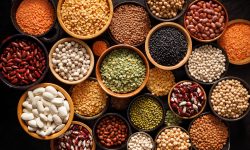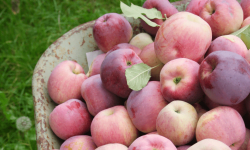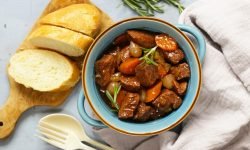Donating 10,000 meals in Pulses! For #WorldPulsesDay Spud is donating 10,000 meals worth with pulses…
While it’s no surprise that local and organic produce have more beneficial nutrients (such as antioxidants) than their conventionally grown counterparts, did you know that they’re also fighting climate change? Learn more about why we aim to source as many local and organic options as possible!
What is the difference between organic and conventional produce?
Organic farming means farming without the use of pesticide residues, synthetic fertilizers, or other chemical inputs to enhance growth and protect against pests and diseases. Organic farms typically rely on methods that prioritize soil health such as crop rotation, cover crops, or natural predators. At Spud, we prioritize farmers that use organic and regenerative farming practices to support soil health, biodiversity, and the health and welfare of its animals and workers.
Is Organic Produce Healthier?
Because there is a lack of chemicals used, many studies show that organic produce contains higher levels of nutrients and antioxidants and lower levels of pesticide residues.
Environmental Benefits of Organic Produce
Fewer greenhouse gases
According to the David Suzuki Foundation, synthetic nitrogen fertilizers in the soil produce nitrous oxide, a greenhouse gas about 300 times more powerful than carbon dioxide at trapping heat in the atmosphere. Organic farms rely on natural manure and compost for fertilizer. They store much more carbon in the soil, keeping it out of the atmosphere.
Water Conservation
Not only is organic food good for the environment on land and in the soil, but also for water supplies. The organic farmer keeps our water clean by stopping polluted runoff. This also conserves water, as organic products tend to require less irrigation than conventional products.
Increased BioDiversity
Natural pest control methods such as crop rotation and cover crops can help maintain healthy soil, preserve biodiversity, and support wildlife habitats.
Reduced Soil Erosion
Organic farming practices prioritize soil health which can help reduce erosion and promote soil conservation.

How to shop organic at Spud:
You can always look for the organic symbol on all our products. Or when you are shopping any category, simply click ‘Organic’ on the left-hand side to filter through our options. Did you know our Blush Lane stores in Alberta are 100% organic?






